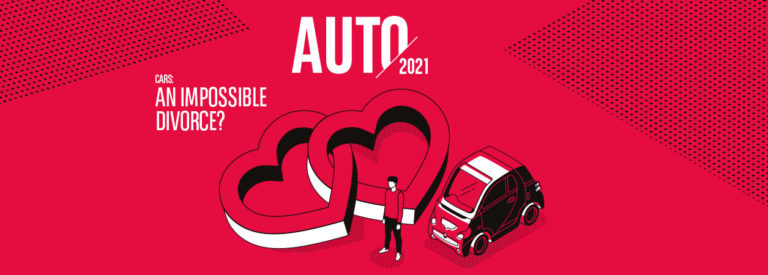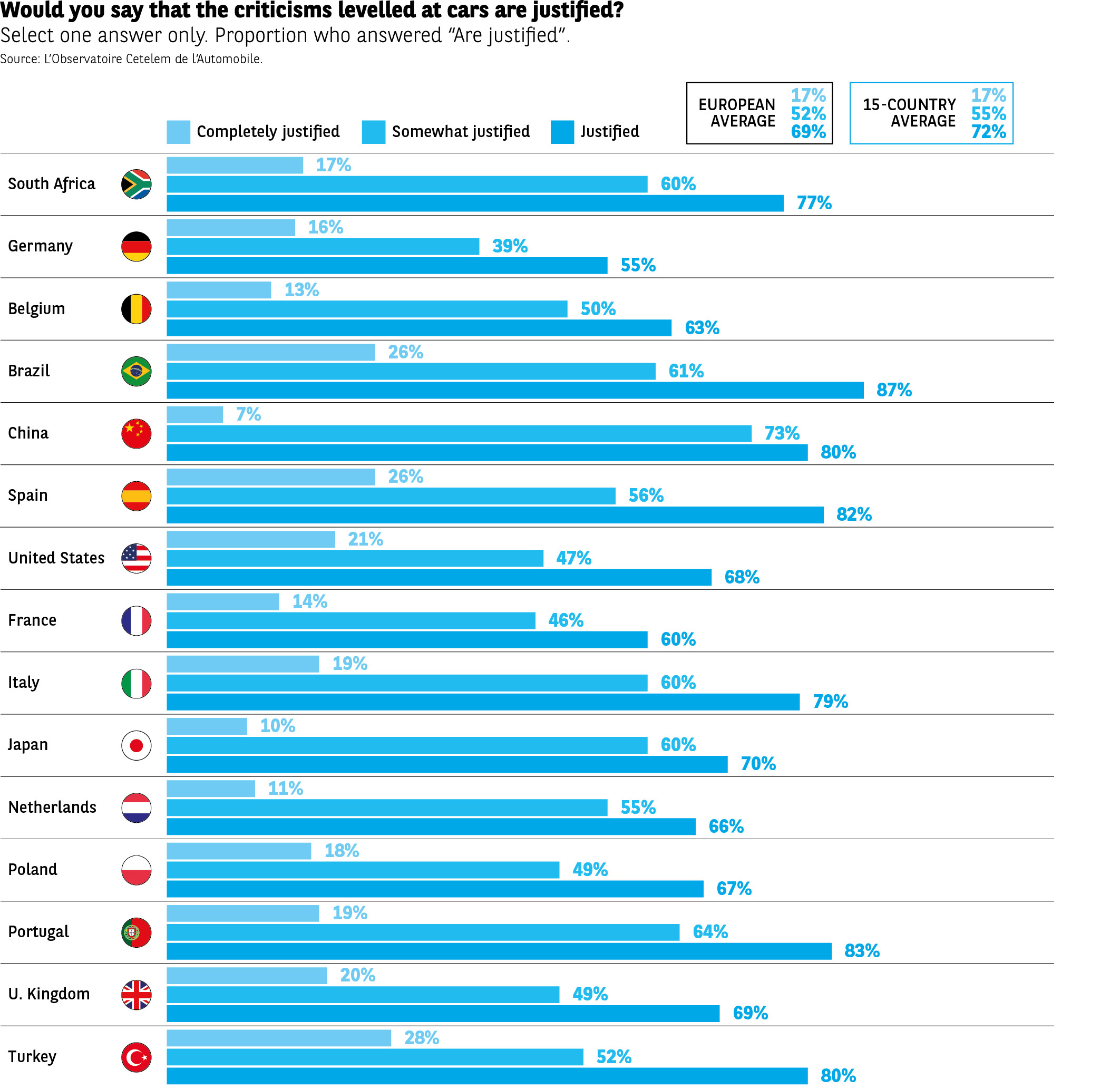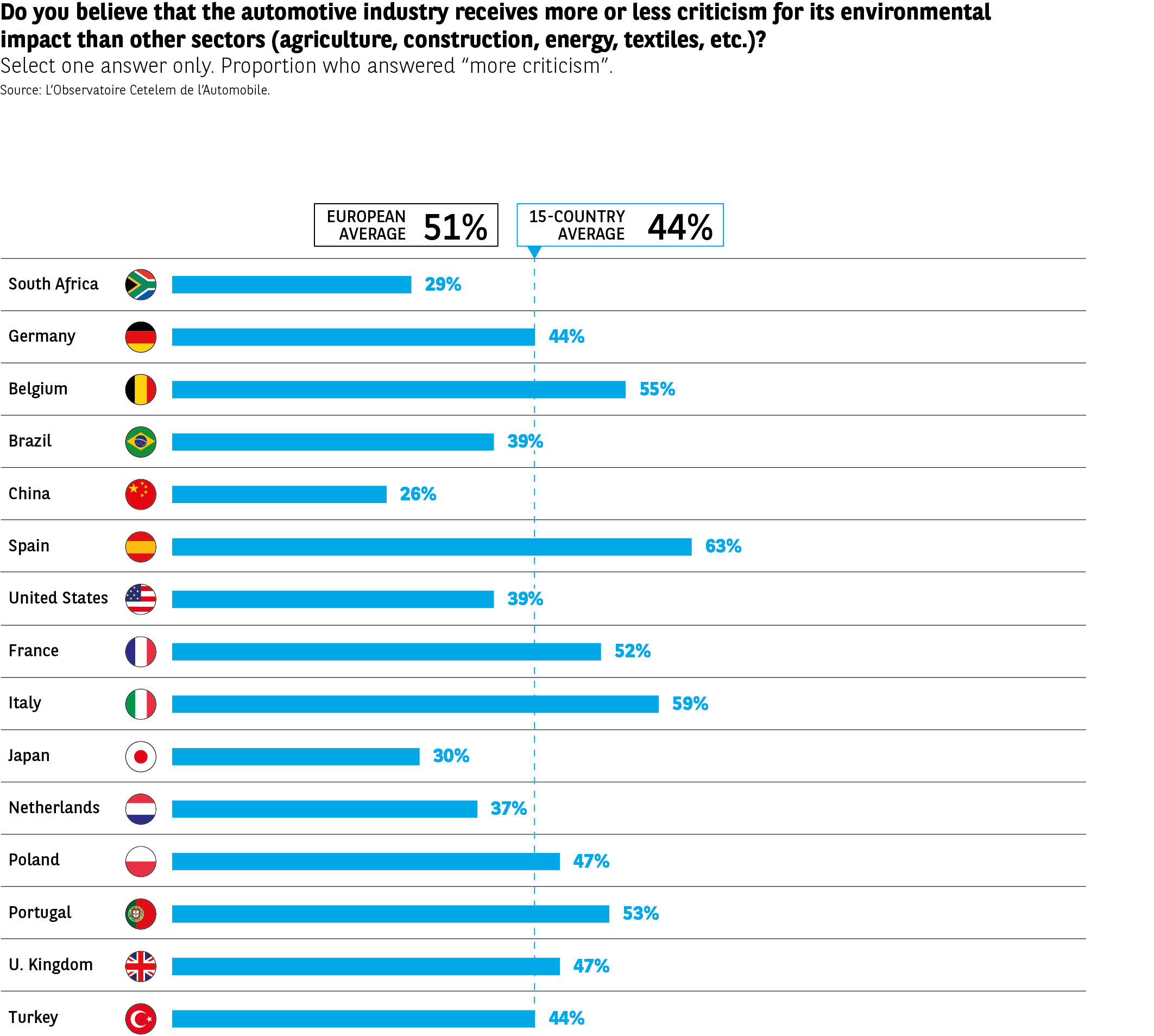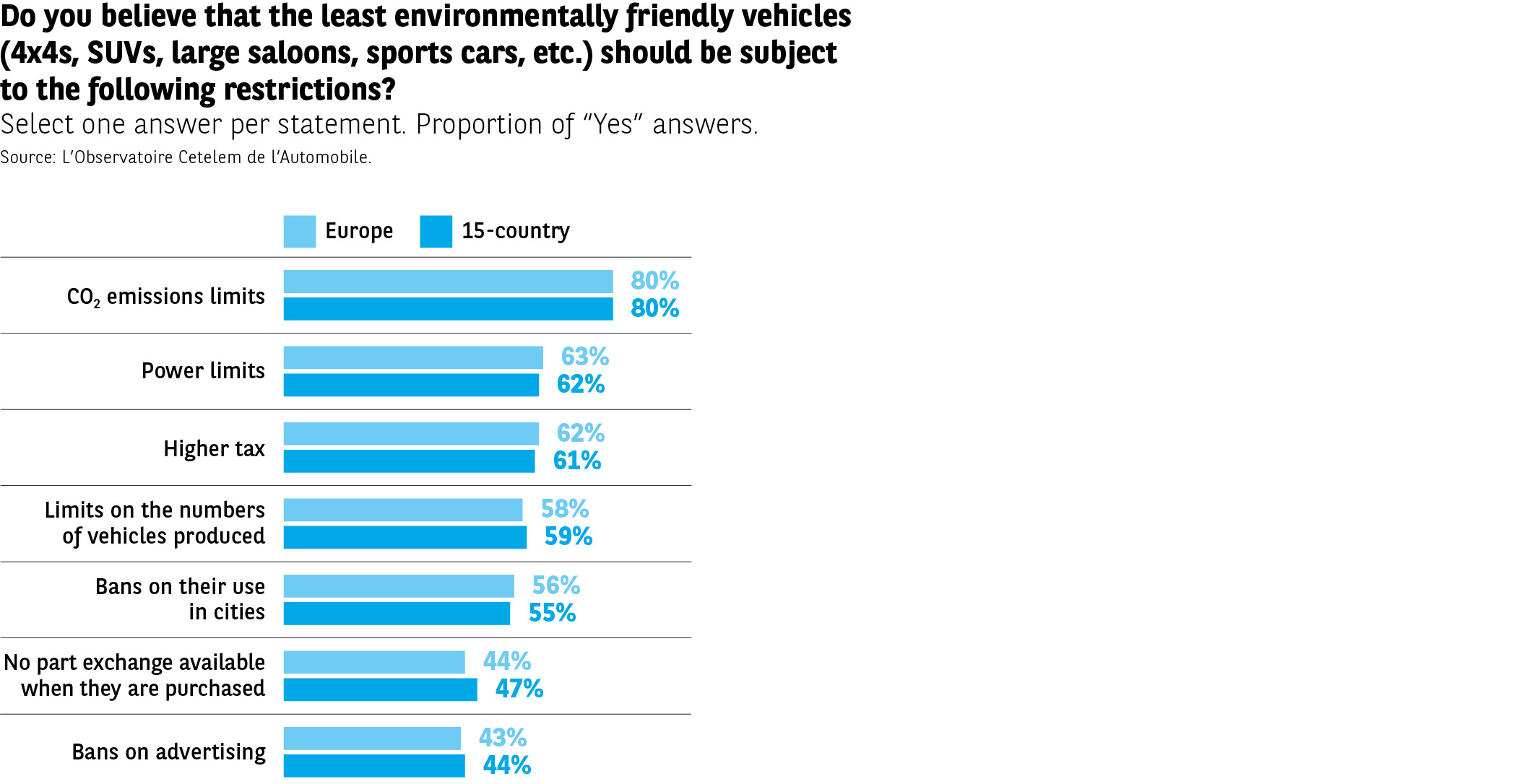Sustained environmental pressure


When it comes to the environment, legitimate concerns are raised about the auto industry…
The view seems to be that the automotive sector is not receiving the economic support it deserves. But would it be sensible to do so, given that those surveyed believe that the industry does not take sufficient environmental responsibility? Indeed, there is a clear consensus on this matter. 72% (69% in Europe) feel that criticism of the auto industry for environmental failings is justified (Fig. 11). The figure exceeds 50% in every country. The emerging nations and those on the Iberian Peninsula are the most vehement, with 87% of Brazilians and 83% of Portuguese deriding the sector for its lack of respect for the environment.
Even in the United States, whose politics in recent years has cultivated a degree of climate scepticism, 68% condemn the environmental harm caused by vehicles.
One has to look to Belgium, France and Germany (63%, 60% and 55%) to find the least critical respondents. These are three countries in which the most recent elections were considered a great success for Green parties. A paradox? No, this simply reflects a greater maturity of judgement. Criticism in this area is now a firmly established part of public opinion that is quickly becoming the norm. In addition, contradictory arguments have brought out opposing viewpoints that temper such condemnation.
… But more than other sectors
However, 1 in 2 people in Europe (44% worldwide) (Fig. 12) believe that motor vehicles receive more criticism in this respect than sectors such as construction, agriculture and other forms of transport. Inhabitants of European Union countries, who are probably more mature and better informed when it comes to environmental issues, are more likely to be of this opinion (63% in Spain, 59% in Italy). At the opposite end of the spectrum, the Chinese are quicker to blame urban pollution on cars than on industry, with only a small proportion sharing the view that the auto industry is unfairly criticised (26%).
Polluting vehicles should be heavily taxed
Viewed against the backdrop of a major health crisis, penalising drivers of the least eco-friendly vehicles seems to be an uncontroversial idea. Of all the measures put forward, setting a CO2 emissions limit is the most popular (80%) (Fig. 13). The Chinese, whose country is the most severely affected by pollution, are the most likely to favour such a regulation (88%), followed closely by the Turks (87%), whose capital city is a vast and continuous traffic jam. Meanwhile, American citizens are the least enthusiastic about the idea (67%).
Two additional measures are also viewed favourably. One relates to vehicle power output, the other to the wallets of potential buyers. 62% globally (63% in Europe) would like to see vehicle power limited. Once again, the Chinese and Turks are very much in favour of this measure (76% and 69%), as are the French (69%). The three populations that are the least convinced of its validity are the South Africans, the Americans and the Dutch (54%, 53% and 52%). As regards the imposition of financial penalties, the Chinese and Turks are again the most enthusiastic (79% and 68%).
Two final measures are popular among more than half of those surveyed. Restricting production of the least environmentally-friendly vehicles (59%). Prohibiting these same vehicles from entering cities (55%). Once again, the Chinese and Turks head the field of those who support these solutions. It should be noted that France ranks third on every measure put forward.



